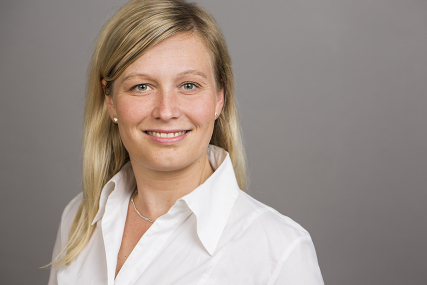WORST-CASE-SCENARIOS FOR CIVIL SAFETY
Fire safety experts from the University of Magdeburg develop first evacuation strategies for people with disabilities

A team of scientists led by the fire engineer Dr.-Ing. Andrea Klippel from the Otto von Guericke University Magdeburg developed the first-ever operational civil protection evacuation strategies for individuals with physical, mental, or age-related impairments.
The research project is part of a joint project funded by the Federal Ministry of Education and Research BMBF titled “Safety for individuals with physical, mental, or age-related impairments SiME”. Safety engineers, scientists, and material researches are working with mid-size companies and operators of facilities for the disabled to assemble exemplary suggestions for safety concepts for the evacuation of nursing homes, retirement homes, or workshops for the disabled in natural disasters or fires by 2019.
“Up until now disabled individuals, whether they are suffering from dementia or seniors with limited mobility, whether they are young people in workshops for the disabled, who rely on wheelchairs, perhaps they are blind or deaf, are not taken into account in evacuation models,” explains project manager Dr.-Ing. Andrea Klippel from the Institute for Equipment and Environmental Engineering at the University of Magdeburg. “Their evacuation from a dangerous situation poses an enormous challenge to emergency and care personnel. In 2012 there was a disastrous fire in a Caritas workshop for the disabled in Titisee-Neustadt. After a gas oven explosion, 14 people including a supervisor, lost their lives. Over 85 people had to be evacuated. 14 people suffered from severe to moderate injuries due to smoke. In Lower Saxony Wiefelstede a fire disaster occurred in October 2014 in a nursing home for people with dementia, in which a person was killed and about 25 people, including nurses, were seriously injured by smoke poisoning."
In the coming weeks, Dr.-Ing. Andrea Klippel and her colleagues will evaluate these and other events, perform risk analysis on damage scenarios for impaired individuals, care personnel, and rescue workers and subsequently simulate large fires and worst-case scenarios in nursing and retirement homes as well as a workshop for the disabled.
They will obtain reliable data on the spreading of fire, on toxic substances in smoke, or temperature development, will be able to calculate thermal radiation and visibility, evaluate access routes for rescue teams and find out how the use of aids such as wheelchairs or walkers influence the movement behavior of groups.
The findings from the scenarios form the basis for computer simulations. Then combustion processes can be effectively and accurately modeled and predicted in the future, and will serve as the basis for evacuation strategies for nursing homes and workshops for the disabled.
“With our research we want to recalibrate existing safety concepts, in which the evacuation and rescue of impaired persons isn’t included, as well as construct models, with which we will be able to reliably predict fire development and scenarios in the future,” says fire engineer Klippel. “It will then be possible to sensitize rescue workers, care personnel, and also the general population on these problems and to educate and train them using new strategies and evacuation strategies.”
The joint project is funded by the BMBF with 1.12 million euros for a time frame of three years.
More information on the individual projects and the joint project partners can be found at www.sime-projekt.de
Photo: Dr.-Ing. Andrea Klippel (source: private)
Media contact: Dr.-Ing. Andrea Klippel, Institute for Equipment and Environmental Engineering, Faculty of Process and Systems Engineering, phone: +49 391 67-20180, e-mail: andrea.klippel@ovgu.de
Safety Experts Minimize Risks in Technological Processes in the Future
20.07.2016 -Starting in the upcoming winter semester the Otto von Guericke University Magdeburg will be training safety engineers in environmental protection. The graduate study program in Process Safety and Environmental Engineering, the only one of it’s kind in Germany, will result in qualified professionals, who will be able to identify, minimize, and fight risks in technologies and industrial processes at the intersection of process and engineering sciences and environmental protection.
“The economic use of energy reserves, safe production plants, and low-risk handling of materials, as well as environmental protection are gaining importance worldwide,” states Prof. Dr.-Ing. Ulrich Krause from the Institute of Equipment and Environmental Engineering. “Safety and environmental protection have become essential elements to the industrial society and accepting complex technological processes in a modern industrial society deeply depends on the technical control of well-known risks and the minimization of the environmentally harmful influences. Thus, experts who have a deep understanding of engineering sciences, as well the specific knowledge in safety aspects and environmental technologies are needed.”





